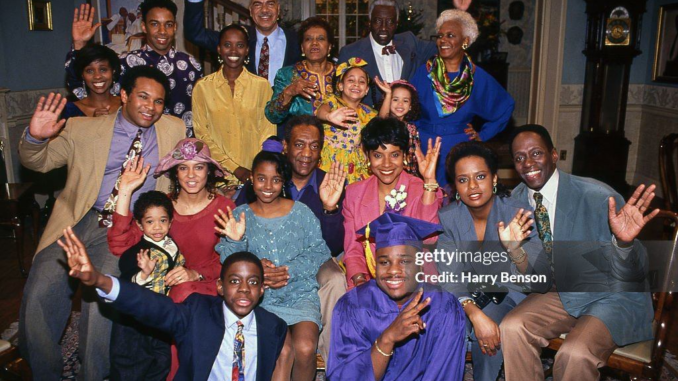
In a world where public figures are often dissected for their personal flaws, it’s easy to forget the lasting impact they had on culture. Few shows exemplify this dichotomy more than The Cosby Show, the iconic sitcom that ran from 1984 to 1992. At the height of its success, it was the heart of American television, a beacon of family values, humor, and representation. The show’s message resonated deeply with audiences, offering an uplifting portrayal of an African-American family. Despite the controversies surrounding its creator and star, Bill Cosby, we must not let his actions overshadow the profound cultural significance of The Cosby Show and why we were right to love it.
A Groundbreaking Show for Its Time
When The Cosby Show premiered, it defied expectations. At a time when Black families were rarely seen in primetime sitcoms, let alone portrayed as educated, successful, and loving, The Cosby Show was revolutionary. The Huxtables were a wealthy, professional family where both parents, Heathcliff and Clair, were doctors. This portrayal shattered stereotypes and gave America a new lens through which to view African-American life.
The show wasn’t just about racial identity—it was about family dynamics. It tackled universal issues like adolescence, marriage, parenting, and ambition, all while celebrating Black culture. The humor was timeless, drawing in diverse audiences who could relate to the family’s struggles and triumphs.
The Show’s Lasting Cultural Impact
The Cosby Show’s influence transcended television. It became a cultural touchstone, shifting the portrayal of Black families in the media. It paved the way for future shows such as Fresh Prince of Bel-Air, Living Single, and Black-ish. Many actors, including Keshia Knight Pulliam, Malcolm-Jamal Warner, and Tempestt Bledsoe, became household names, showing young viewers that they could achieve success in Hollywood.
For African-American viewers, it was revolutionary to see a Black family depicted in such a positive light. It gave a voice to a community that had long been underrepresented or misrepresented in mainstream media. The Huxtables’ success proved that Black excellence could—and should—be celebrated.
Separating Art from the Artist
It is essential to recognize that Bill Cosby, the man behind the show, is a criminal whose actions have caused irreparable harm. His convictions are a painful reminder of the dangers of unchecked power and the betrayal of trust. However, this doesn’t diminish the cultural value of The Cosby Show. The work itself—its portrayal of a loving family, its message of education and ambition, and its positive impact on television and society—should still be celebrated.
When we look back on The Cosby Show, it’s important to distinguish the work from the creator. The show brought joy, laughter, and important conversations about family and race to millions of viewers. It offered a rare depiction of Black life as dignified, multifaceted, and aspirational. The Huxtables, as characters, will remain beloved figures in the hearts of many, their storylines providing a snapshot of life during a crucial era in American television.
A Legacy That Lives On
Though the conversation surrounding The Cosby Show has become complicated, it’s vital to remember the positive legacy it left behind. It was a groundbreaking show that defied stereotypes, encouraged educational achievement, and showcased a loving family dynamic. The Huxtables will always be remembered as a groundbreaking part of television history.
In the end, we weren’t wrong to love The Cosby Show. Its portrayal of Black families, its focus on strong values, and its universal themes of love, ambition, and family continue to hold significant value. While acknowledging the darkness that later emerged, we can still cherish the good that The Cosby Show brought into the world—its humor, its heart, and its lasting influence on television.
